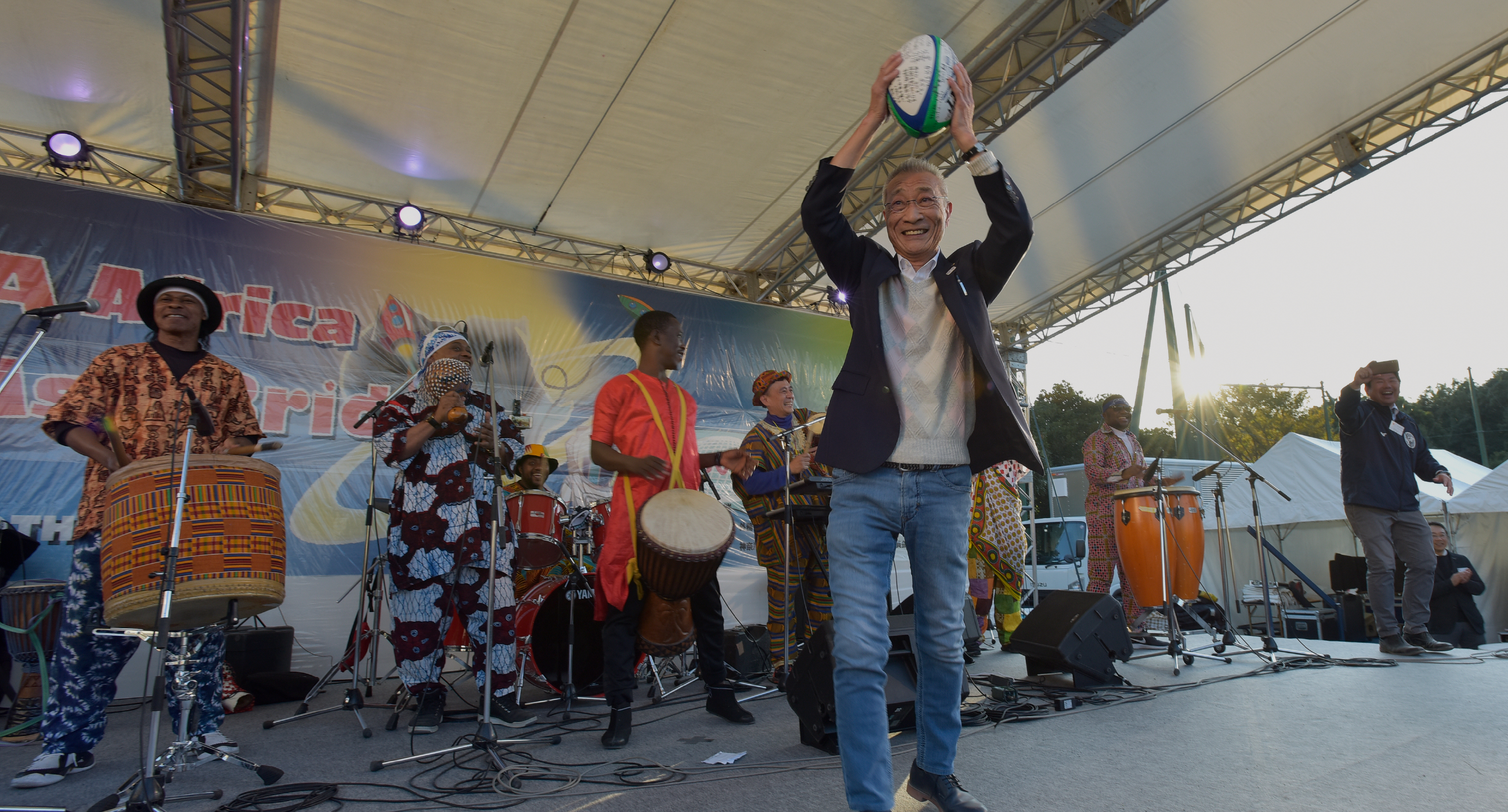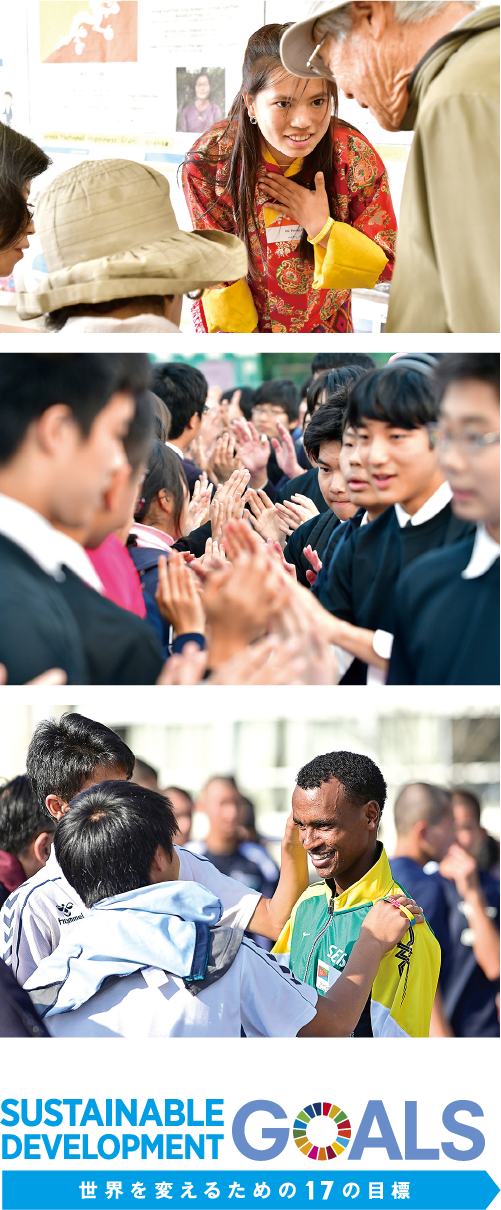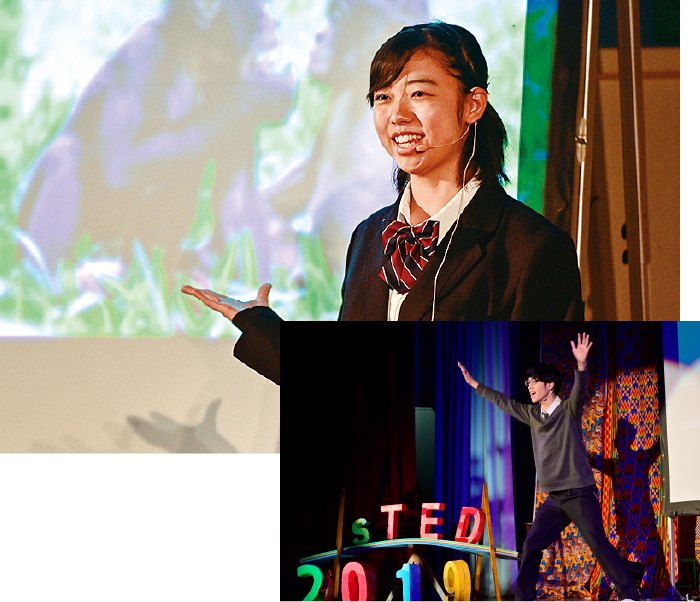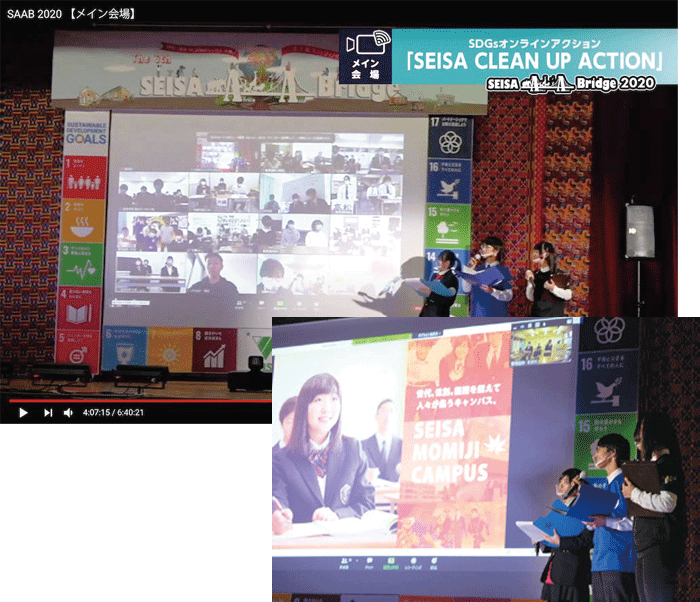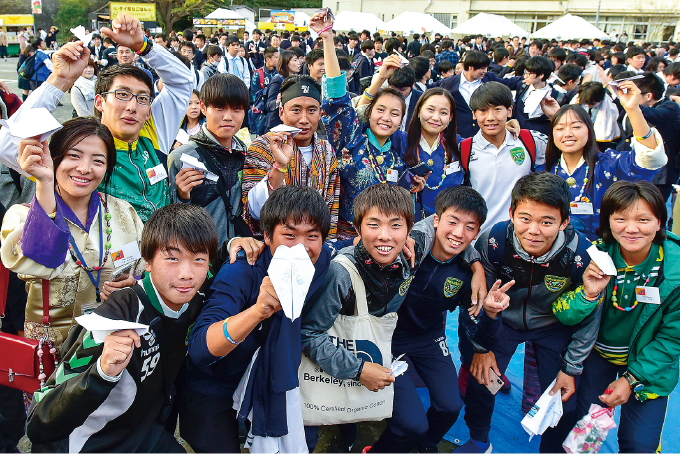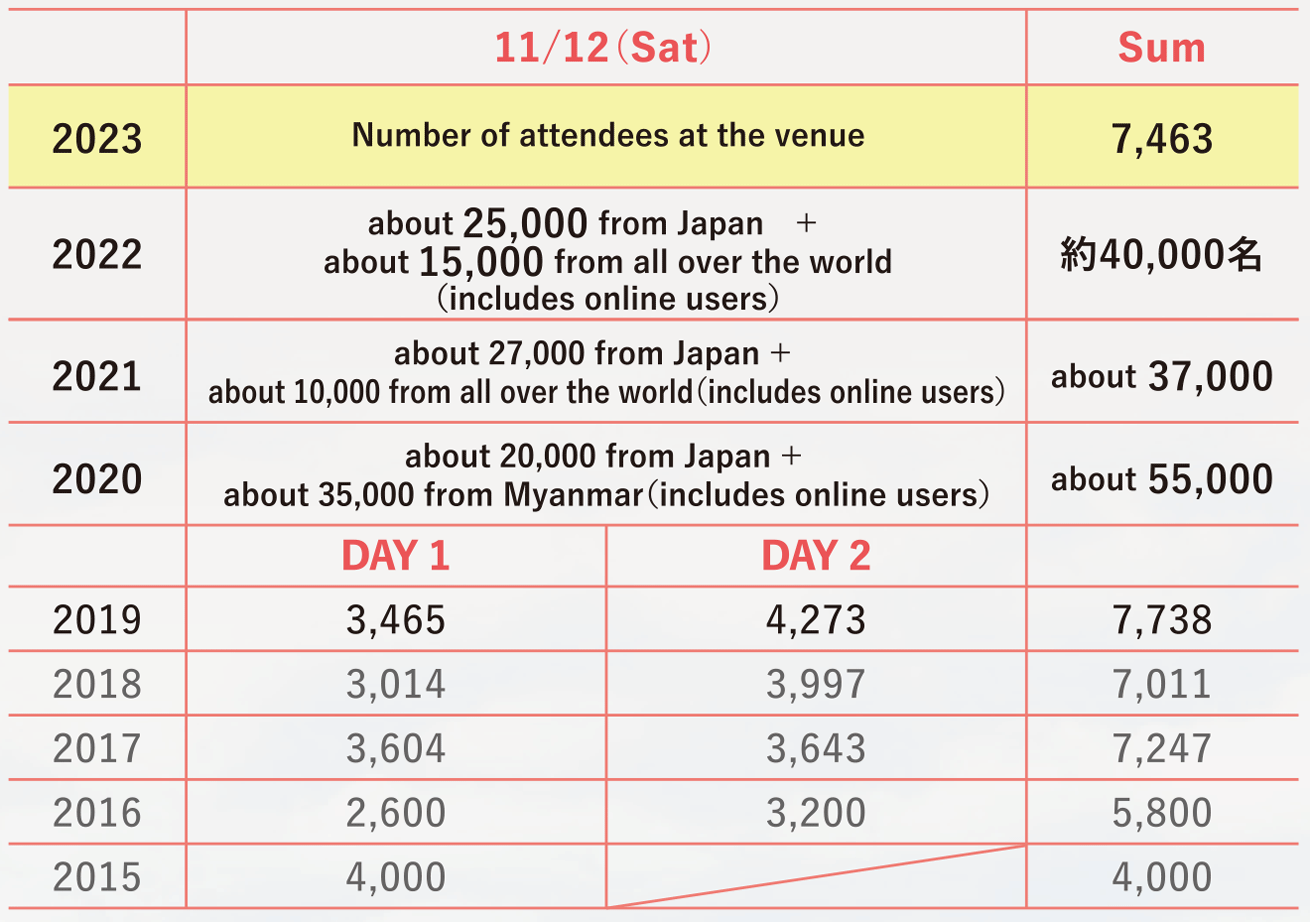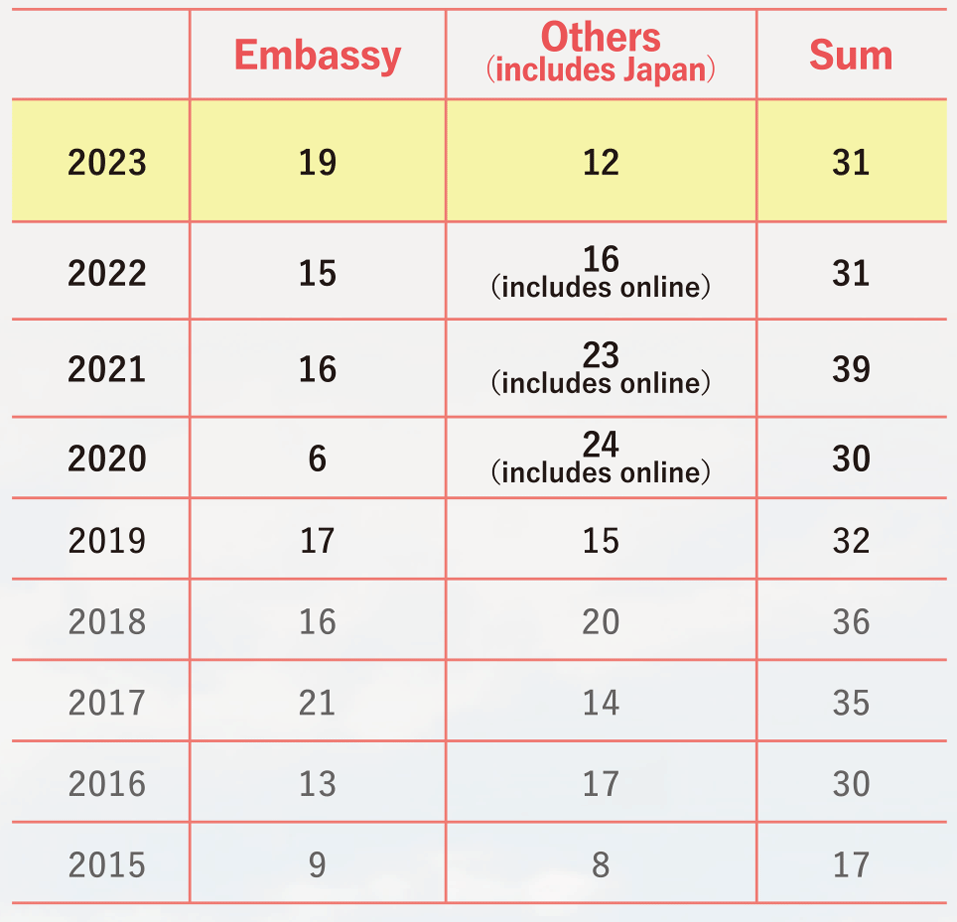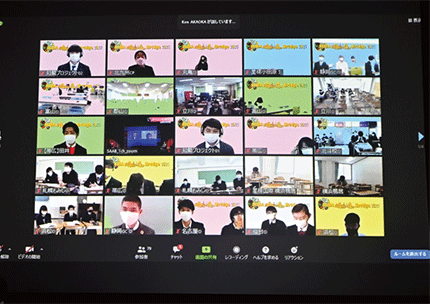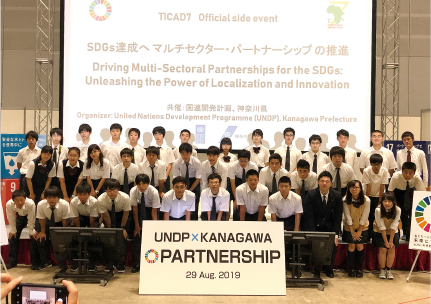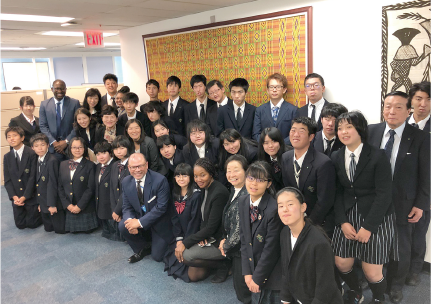SEISA Africa Asia Bridge (SAAB), which was first held in 2015, marks its 10th edition this year.
SAAB was born out of the strong desire of Honorary Chairman Yasuo Miyazawa, founder of SEISA Group, to build a “bridge (HASHI)” between Africa and Asia for the future of children.
Africa is now known as a continent with a great deal of natural resources and it can be said to be the center of the world that attracts the attention of many people as a base for ICT development. We are now approaching a very important time to think about how we should deal with this change and what kind of attitude we should take toward the world in the next 10 to 20 years. With the aim of realizing the goals of children “knowing” about and "connecting" with African countries, SAAB is an event where people from various countries discuss the beauty and potential of diversity in Africa, and sympathize with each other.
In recent years, the use of online video platform enables us to talk with people from more countries. We would also like to make SAAB as an opportunity to explore how Japanese can interact and connect with people overseas, and how we can act on the issues faced by various countries. We, SEISA, think "understanding each other, making friends instead of leaving someone out, and acting together" is the very important learning. We hope this experience will be a seed for young people in Japan and overseas, who will lead the next generation, to think and act for themselves.
“SAAB is for children to think about their future. We are planting seeds for the future!”
We will inherit the thoughts of Honorary Chairman Yasuo Miyazawa and keep “seeding" for future children.
Message for the 1st SEISA Africa Asia Bridge(2015)
“Africa” is known to everybody. However, how far do we understand the real Africa? The image most people have as regards Africa may have something to do with lion, giraffe, elephant, etc. It is far away from us, physically and psychologically, and it is seldom that we feel it close to our daily life. In the reality, however, the continent has more than 20% of the total land space of the earth, and there are more than 3,000 different languages spoken. In addition, it is said to be the birthplace of the human being. Africa will surely become more significant continent for Japan in 10 years, 20 years or 30 years, because it is very rich in natural resources. It is no exaggeration to say that Africa may be the only region capable of supplying enough natural resources to cover Japan’s requirements. Therefore, it is very important for children who bear the future of Japan to learn about Africa and know its people, and do cultural exchanges with them by taking every opportunity.
It is true that Africa is far away in terms of distance, but in the near future the time may come when we can go to Africa in a few hours. Please think about how the transit time between Tokyo and Kyoto has changed from Edo-era, Meiji-era, Showa-era through today. Hence, it may not be unrealistic to reach Africa from Japan in 1-2 hours in the future. Physical distance will surely be shortened. In line with it, psychological distance should be shortened, too; Japan needs to be closer to Africa. Among Asian countries, Japan knows Africa better than others. Therefore, we should play a key role by strengthening relationship/friendship with Africa, making more efforts to establish the peace there and to assist them in further development as their good partner.
It would be greatly appreciated if you would help us nurturing children and youth who have closer hearts rather than physical distance in both Japan and Africa. Thank you.
Yasuo MIYAZAWA
 ×
×
